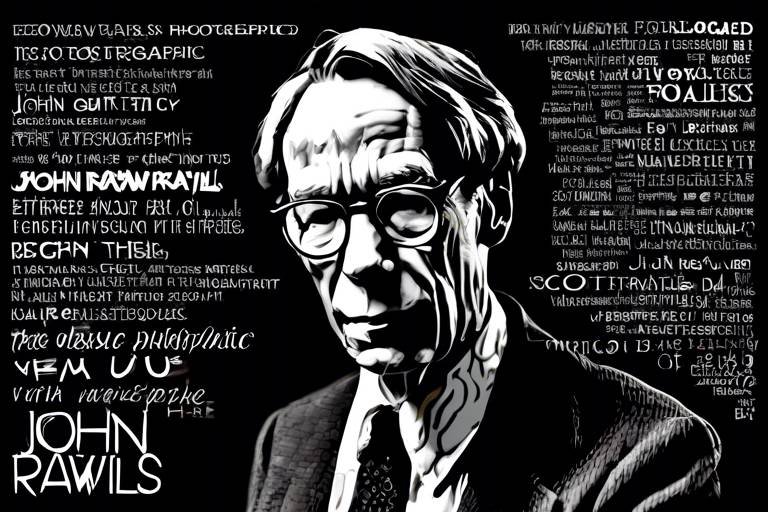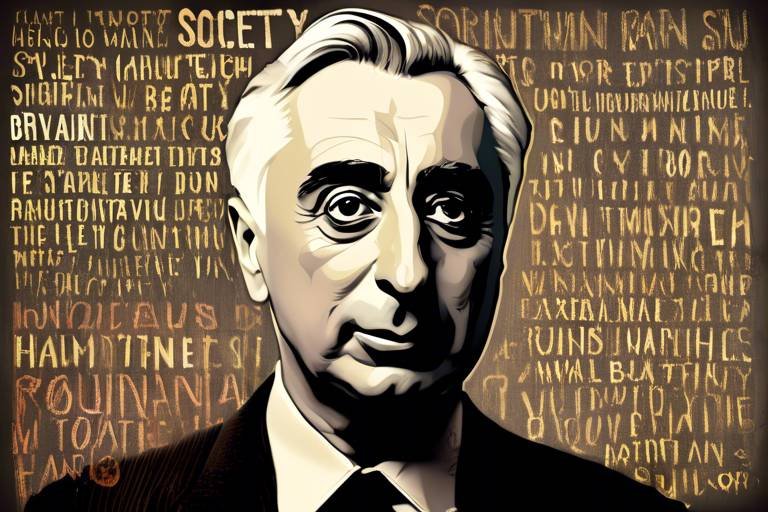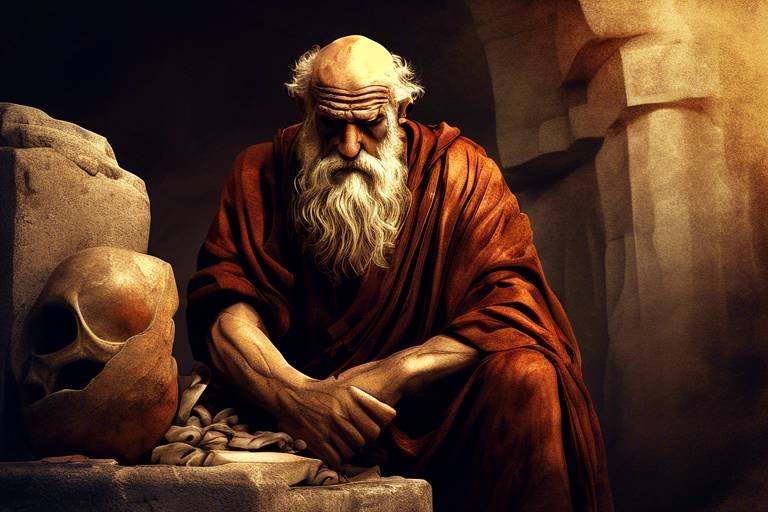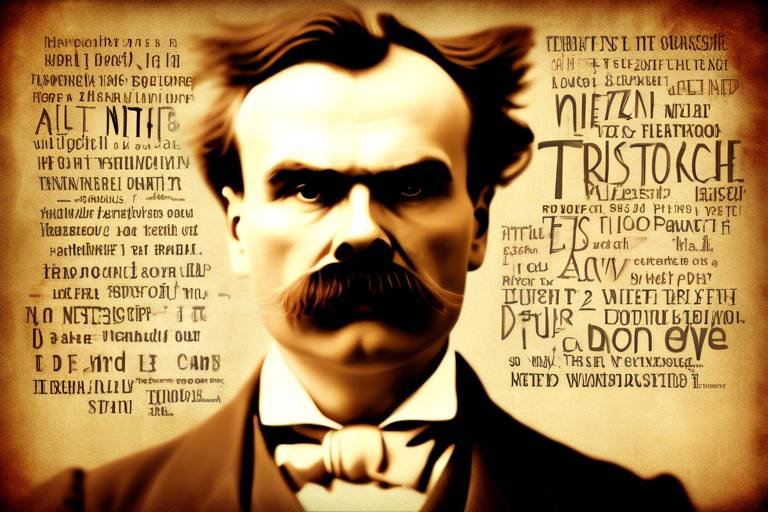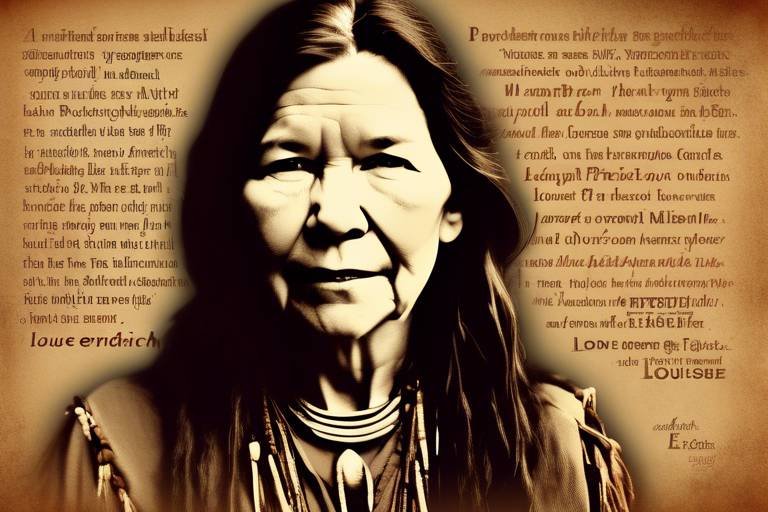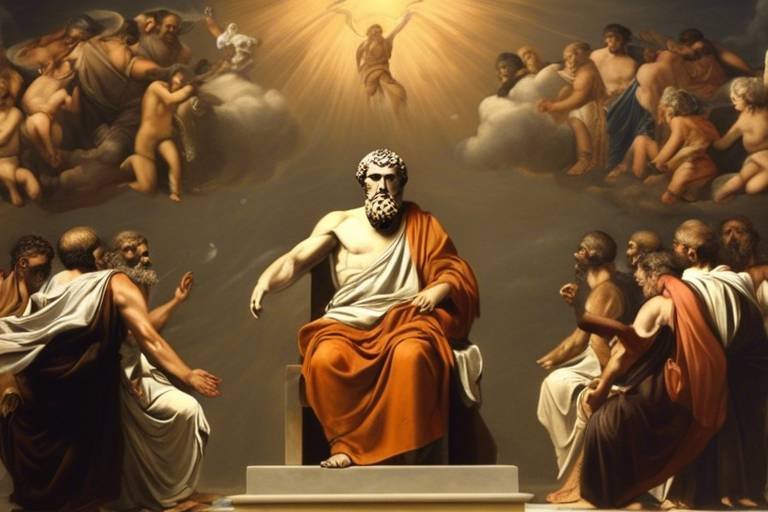Why Did Voltaire Oppose Organized Religion?
Voltaire, a towering figure of the Enlightenment, is often remembered for his sharp wit and relentless critique of organized religion. But why did he take such a strong stance against it? To understand Voltaire's opposition, we must delve into the philosophical underpinnings of his beliefs, the historical context he lived in, and the profound impact his critiques had on society and thought. His disdain for organized religion was not merely a personal vendetta; it was a reflection of his commitment to reason, tolerance, and human progress. Let’s explore the various dimensions of his opposition.
Voltaire was significantly influenced by the Enlightenment thinkers who championed reason and skepticism over blind faith. The Enlightenment was a period that encouraged individuals to question established norms and seek knowledge through reason rather than tradition. Philosophers like John Locke and René Descartes laid the groundwork for this intellectual movement, advocating for rational thought and empirical evidence. Voltaire absorbed these ideas and applied them to his critiques of organized religion, arguing that faith should not be based on dogma but rather on rational inquiry and personal experience. His views were revolutionary, challenging the long-held beliefs that had governed society for centuries.
At the heart of Voltaire's opposition was his fierce critique of religious dogma and superstition. He believed that rigid adherence to religious doctrines stifled human rationality and hindered progress. Voltaire famously stated, "Doubt is not a pleasant condition, but certainty is absurd." This statement encapsulates his belief that blind faith leads to ignorance and irrationality. He argued that when individuals accept dogma without question, they open the door to superstition and fanaticism. Such beliefs, he contended, have dire consequences, not just for individuals but for society as a whole. Voltaire's writings often highlighted the absurdities of religious practices, revealing how they could lead to moral and ethical dilemmas.
Religious intolerance was another major concern for Voltaire. He witnessed firsthand the devastating effects of fanaticism, which often resulted in violence and persecution. In his famous work, "Treatise on Tolerance," Voltaire passionately called for tolerance among different faiths. He argued that intolerance breeds hatred and conflict, undermining the very fabric of society. His advocacy for religious tolerance was not just a philosophical stance; it was a plea for humanity to embrace diversity and coexist peacefully. Voltaire believed that a society that promotes tolerance is one that fosters innovation, creativity, and ultimately, progress.
Freedom of thought was a cornerstone of Voltaire's philosophy. He believed that questioning established norms and beliefs was essential for personal and societal growth. In an era where dissent was often met with persecution, Voltaire championed the idea that individuals should have the right to think freely and express their thoughts without fear of retribution. He famously declared, "I disapprove of what you say, but I will defend to the death your right to say it." This commitment to freedom of expression extended to religion, where he argued that dogmatic beliefs should be scrutinized and challenged. Voltaire's advocacy for freedom of thought laid the groundwork for modern secularism and the separation of church and state.
Historical events such as the Thirty Years' War and the Inquisition profoundly shaped Voltaire's views on organized religion. These events illustrated the catastrophic consequences of religious zealotry and intolerance. The Thirty Years' War, a brutal conflict fueled by religious differences, resulted in millions of deaths and widespread devastation across Europe. Similarly, the Inquisition showcased the lengths to which religious authorities would go to suppress dissent and maintain control. Voltaire's disdain for organized religion was fueled by these historical atrocities, which he believed were perpetuated by an unyielding adherence to dogma and a lack of critical thought.
Voltaire's personal experiences with religious authorities also informed his perspectives. He faced numerous conflicts with the Church, including imprisonment and exile, due to his outspoken critiques. These encounters not only shaped his views but also fueled his resolve to challenge the status quo. Voltaire's writings reflect his deep-seated belief that organized religion often serves as a tool for oppression rather than enlightenment. His experiences allowed him to empathize with those who suffered under the weight of religious tyranny, motivating him to advocate for reform and change.
Satire was a powerful weapon in Voltaire's arsenal against organized religion. He masterfully employed humor and irony in his works, most notably in "Candide," to expose the hypocrisy and absurdities of religious institutions. Through his satirical lens, Voltaire critiqued not only the dogmas of religion but also the societal norms that upheld them. His use of humor made his critiques accessible and engaging, inviting readers to reflect critically on their beliefs. Voltaire understood that laughter could be a catalyst for change, and he harnessed its power to provoke thought and inspire dialogue about faith and reason.
Voltaire's opposition to organized religion has had a lasting impact on Western thought. His ideas influenced future thinkers such as Thomas Jefferson and Karl Marx, who grappled with the relationship between religion and society. Voltaire's advocacy for reason, tolerance, and freedom of thought contributed to the development of secularism, shaping modern democratic ideals. His legacy serves as a reminder of the importance of questioning established norms and the dangers of unbridled faith.
Today, Voltaire's critiques remain remarkably relevant as society grapples with issues of faith, reason, and the role of religion in public life. In an age marked by religious extremism and intolerance, his calls for reason and tolerance resonate strongly. Voltaire's insistence on the importance of questioning beliefs encourages us to engage in meaningful dialogue about faith and its place in a diverse society. His legacy challenges us to uphold the values of reason and critical inquiry as we navigate the complexities of modern life.
- What were Voltaire's main criticisms of organized religion?
Voltaire criticized organized religion for its dogma, superstition, and intolerance, arguing that these elements stifle human rationality and progress. - How did historical events influence Voltaire's views?
Events like the Thirty Years' War and the Inquisition highlighted the dangers of religious fanaticism, shaping Voltaire's disdain for organized religion. - What role did satire play in Voltaire's critiques?
Voltaire used satire to expose the hypocrisy of religious institutions, making his critiques engaging and thought-provoking. - Why is Voltaire's opposition to organized religion still relevant today?
His ideas about reason, tolerance, and freedom of thought continue to resonate in contemporary debates about faith and its role in society.
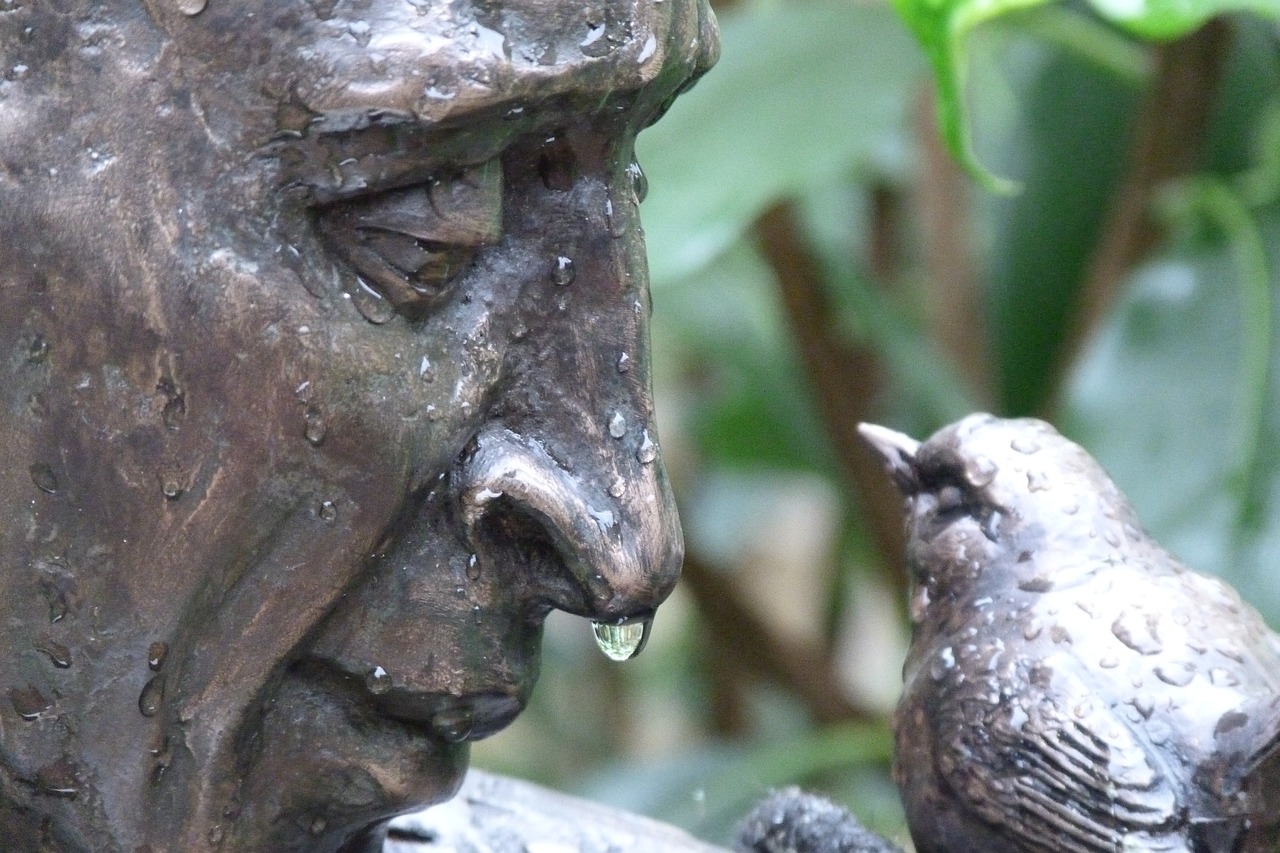
The Influence of Enlightenment Thinkers
Voltaire, a prominent figure of the Enlightenment, was deeply influenced by a wave of thinkers who championed reason, skepticism, and a critical approach to traditional beliefs. This intellectual movement emerged in the 17th and 18th centuries, a time when questioning established norms was not just encouraged but celebrated. Influences such as John Locke, David Hume, and Jean-Jacques Rousseau played pivotal roles in shaping Voltaire's views on organized religion. These philosophers argued for human rights, individual freedoms, and the importance of empirical evidence, which directly challenged the dogmatic assertions of religious institutions.
Locke's theories on the social contract and the importance of personal liberty resonated strongly with Voltaire. He believed that individuals should have the freedom to determine their beliefs without coercion from organized religion. Similarly, Hume's skepticism about religious miracles and the reliance on reason over faith struck a chord with Voltaire, who often critiqued the irrationality found within religious dogma. This intellectual camaraderie fostered a spirit of inquiry that Voltaire would later adopt in his own writings.
Moreover, the Enlightenment encouraged a shift from faith-based understanding of the world to a more rational perspective. Voltaire saw organized religion as a potential barrier to human progress. He argued that blind adherence to dogma stifled intellectual growth and led to societal stagnation. In his view, the Enlightenment thinkers were not merely philosophers; they were the torchbearers of a new age, illuminating the path toward a more rational and tolerant society.
One significant aspect of this philosophical movement was the emphasis on tolerance. Enlightenment thinkers like Voltaire advocated for the acceptance of diverse beliefs and the rejection of fanaticism. This idea was revolutionary at the time, as religious intolerance was rampant, leading to conflicts and wars. Voltaire's writings echoed the sentiments of his contemporaries, promoting a vision of a world where reason triumphed over superstition and where individuals could coexist peacefully, regardless of their beliefs.
In summary, the influence of Enlightenment thinkers on Voltaire was profound. Their ideas about reason, tolerance, and individual freedom not only shaped his opposition to organized religion but also laid the groundwork for modern secular thought. As we delve deeper into Voltaire's critiques, it's essential to recognize that he was part of a larger movement advocating for a society where reason and humanism could flourish, free from the constraints of dogmatic beliefs.
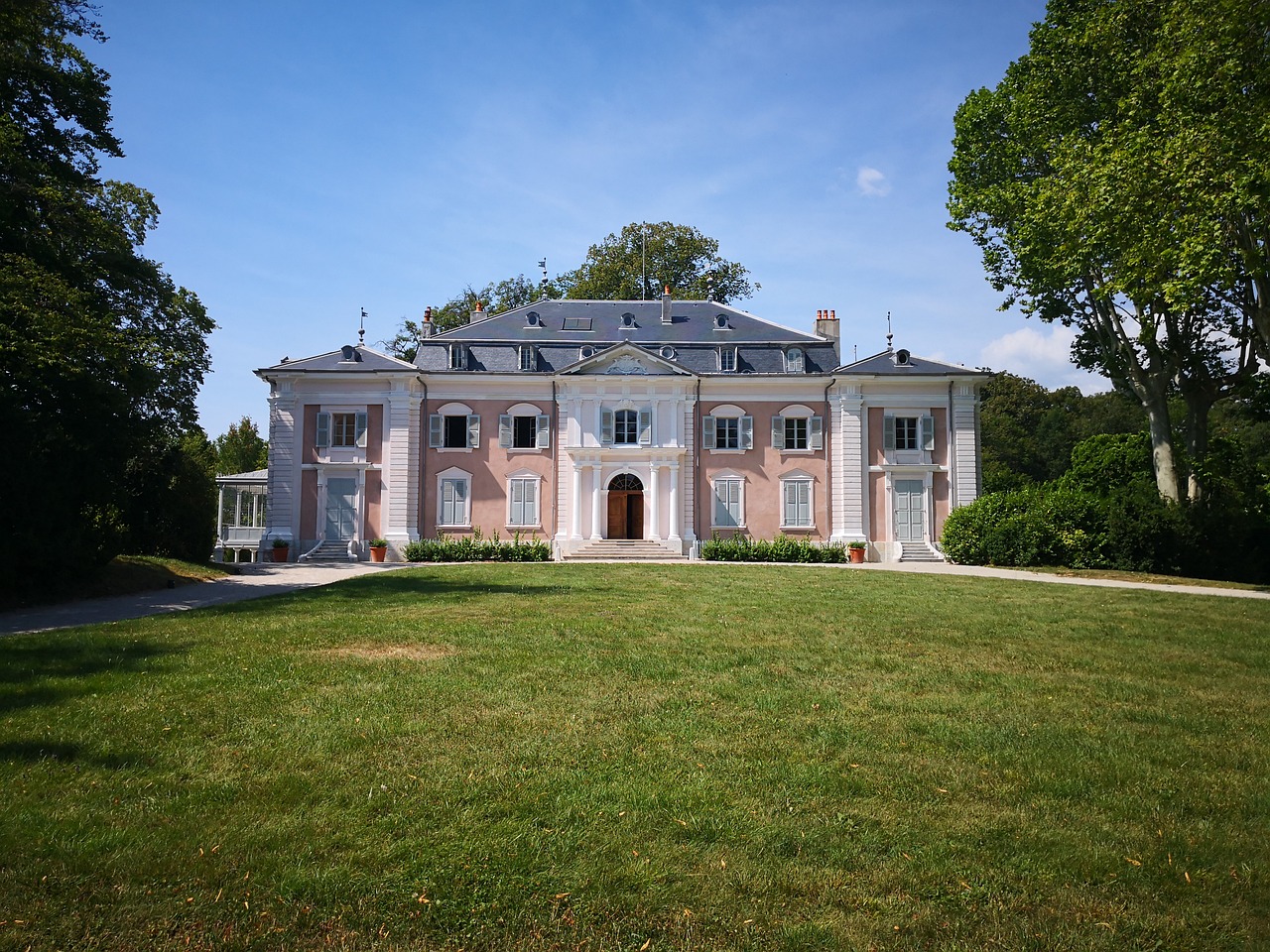
Voltaire's disdain for organized religion was deeply intertwined with his critique of dogma and superstition. He viewed these elements as shackles that bound the human mind, preventing it from achieving true enlightenment and rational thought. For Voltaire, dogma represented a rigid adherence to beliefs that were often unchallenged and unquestioned. He believed that such unyielding faith stifled intellectual growth and led to a society that was blind to reason and critical inquiry.
In his writings, Voltaire often articulated a profound skepticism towards blind faith. He argued that when individuals accept doctrines without question, they become susceptible to manipulation and control by those in power. This manipulation can lead to disastrous consequences, as history has shown time and again. For instance, during the Inquisition, countless individuals were persecuted for their beliefs, often based on dogmatic principles that disregarded human rights and rational discourse.
Voltaire's critique didn't stop at organized religion; he extended it to the superstitions that often accompanied religious practices. He saw superstition as a form of irrationality that could lead to fear, ignorance, and even violence. In his satirical works, he often mocked the absurdities of superstitious beliefs, illustrating how they could distort reality and lead to misguided actions. Consider the following table that summarizes some of Voltaire's key arguments against dogma and superstition:
| Aspect | Voltaire's Critique |
|---|---|
| Dogma | Encourages blind adherence to beliefs, stifling reason and progress. |
| Superstition | Leads to irrational fears and misguided actions, often resulting in societal harm. |
| Intolerance | Fosters division and conflict among people, undermining social harmony. |
Voltaire's emphasis on reason and critical thinking was revolutionary for his time. He believed that the only way to combat the negative effects of dogma and superstition was to promote rational thought and freedom of inquiry. By encouraging individuals to question established norms and beliefs, he hoped to cultivate a society where reason prevailed over blind faith. This perspective was not just an abstract philosophical stance; it was a call to action for his contemporaries to embrace a more enlightened worldview.
In essence, Voltaire's critique of dogma and superstition remains relevant today. As we navigate a world filled with competing ideologies and beliefs, his insistence on the importance of rationality and skepticism serves as a powerful reminder to question what we are told and to seek truth through reasoned discourse. After all, isn’t it better to challenge our beliefs than to accept them without question?
- What did Voltaire believe about organized religion? Voltaire opposed organized religion primarily because he saw it as a source of dogma and superstition that hindered human progress and rational thought.
- How did Voltaire's critiques influence society? His critiques encouraged people to think critically, question established norms, and advocate for religious tolerance and freedom of thought.
- Why is Voltaire's opposition to dogma still relevant today? In a world where misinformation and blind adherence to beliefs can lead to conflict, Voltaire's emphasis on reason and skepticism is more important than ever.

The Case Against Religious Intolerance
Voltaire's opposition to organized religion was not merely a philosophical stance; it was deeply rooted in his passionate belief in tolerance and the dangers posed by religious intolerance. He witnessed firsthand the chaos and suffering that arose from fanaticism, which often led to violence and persecution. In his view, the inability to accept differing beliefs was a fundamental flaw in organized religion. Why should one's faith dictate their treatment of others? This question haunted Voltaire as he observed the consequences of intolerance throughout history.
One of the most striking examples of religious intolerance that Voltaire critiqued was the infamous Inquisition. This brutal institution, which sought to root out heresy, often resorted to torture and execution, all in the name of preserving religious purity. Voltaire argued that such actions not only contradicted the very tenets of compassion and love that religions professed but also stifled human progress. He believed that when people are afraid to express their beliefs or question the status quo, society stagnates. The Enlightenment, with its emphasis on reason and individual thought, stood in stark contrast to the dogmatic approach of organized religion, which often demanded blind adherence.
Furthermore, Voltaire's writings often highlighted the absurdity of religious conflicts. He pointed out that different religions, each claiming to be the one true faith, could not all be correct. This led him to advocate for a more inclusive approach to spirituality—one that embraced diversity rather than shunning it. In his famous words, “Ecrasez l'infâme” (crush the infamous thing), he called for the dismantling of the structures that perpetuated intolerance. He believed that the only way to achieve true harmony was through understanding and acceptance.
In addition to historical events, Voltaire's personal experiences also shaped his views on religious intolerance. He faced persecution for his own beliefs, often clashing with authorities who sought to silence him. These encounters fueled his desire to champion freedom of thought and expression. He recognized that the fight against intolerance was not merely a battle of ideas but a struggle for human rights. Voltaire's commitment to this cause was unwavering, and he used his pen as a weapon to challenge the status quo.
Ultimately, Voltaire's case against religious intolerance serves as a powerful reminder of the importance of tolerance in our society today. His insights resonate in contemporary discussions about faith, freedom, and the need for coexistence among diverse beliefs. As we navigate a world still rife with religious conflict, Voltaire's legacy encourages us to embrace dialogue over division, understanding over ignorance. It begs the question: can we learn from history, or are we doomed to repeat it?
- What were Voltaire's main arguments against organized religion?
Voltaire criticized organized religion for its dogma, superstition, and the intolerance it fostered, which he believed hindered human progress and rational thought. - How did historical events influence Voltaire's views?
Events like the Inquisition and the Thirty Years' War showcased the dangers of religious fanaticism, shaping his disdain for organized religion and its societal repercussions. - Why is Voltaire's advocacy for tolerance relevant today?
In a world still facing religious conflicts, Voltaire's call for tolerance and understanding serves as a crucial reminder of the need for coexistence among diverse beliefs.

Voltaire's Advocacy for Freedom of Thought
Voltaire, a prominent figure of the Enlightenment, was a staunch advocate for freedom of thought, believing it was vital for both personal and societal growth. He famously stated, "I disapprove of what you say, but I will defend to the death your right to say it." This encapsulates his deep commitment to the idea that every individual should have the liberty to express their beliefs and opinions without fear of persecution. In a world where organized religion often dictated the moral and intellectual framework, Voltaire's philosophy was revolutionary.
His writings challenged the status quo, urging people to question established norms and beliefs. Voltaire argued that blind adherence to dogma stifled creativity and innovation, which are essential for progress. He believed that when individuals are free to think critically, they can contribute to society in meaningful ways. This notion of freedom was not merely an abstract concept for Voltaire; it was a call to action. He encouraged people to engage in rational discourse, to debate ideas openly, and to reject the tyranny of thought that often accompanied organized religion.
Moreover, Voltaire's advocacy for freedom of thought was intertwined with his critique of religious intolerance. He recognized that the suppression of dissenting voices often led to violence and conflict. His writings highlighted the dangers of fanaticism, which could arise when individuals were not allowed to express differing opinions. By promoting tolerance and understanding, Voltaire sought to create a society where diverse perspectives could coexist peacefully.
In his seminal work, Candide, Voltaire used satire to illustrate the absurdities of dogmatic thinking. Through the misadventures of his protagonist, he demonstrated how rigid beliefs could lead to suffering and chaos. This approach not only entertained readers but also provoked them to reflect on their own beliefs. Voltaire understood that humor could be a powerful tool for challenging the status quo, making his critiques more accessible and impactful.
Ultimately, Voltaire's vision of freedom of thought was about empowering individuals. He believed that when people are free to think, they can challenge injustice, advocate for their rights, and contribute to the betterment of society. His legacy continues to inspire those who fight for intellectual freedom, reminding us that questioning and critical thinking are essential for a vibrant, progressive society.

Impact of Historical Events
Voltaire's views on organized religion were not formed in a vacuum; rather, they were deeply influenced by the tumultuous historical events of his time. The backdrop of the Thirty Years' War (1618-1648) and the brutal Inquisition played pivotal roles in shaping his disdain for institutionalized faith. These events were characterized by extreme violence and persecution, often justified in the name of religion. Voltaire witnessed firsthand how religious dogma could lead to catastrophic consequences, making him a fierce advocate for reason and tolerance.
For instance, the Thirty Years' War, which ravaged Europe, was primarily a conflict between Catholic and Protestant states. The sheer scale of destruction and loss of life during this period left an indelible mark on Voltaire's psyche. He often reflected on the absurdity of such conflicts, questioning how a belief in a benevolent deity could lead to such suffering. In his writings, he urged people to recognize the dangers of religious fanaticism and to seek common ground based on reason rather than blind faith.
Moreover, the Inquisition, notorious for its persecution of heretics, further fueled Voltaire's criticisms. The oppressive nature of this institution exemplified the dangers of a powerful organized religion that sought to control thought and suppress dissent. Voltaire's personal encounters with religious authorities, including his imprisonment in the Bastille for his outspoken views, underscored the need for freedom of thought and expression. He believed that such historical injustices highlighted the importance of questioning established norms and advocating for a more rational approach to spirituality.
In summary, the historical context of religious conflict and persecution significantly influenced Voltaire's opposition to organized religion. He saw the need for a society that valued tolerance and freedom of thought, advocating for a shift away from dogmatic beliefs towards a more enlightened perspective. This perspective not only shaped his own philosophy but also laid the groundwork for future debates about the role of religion in society.
- What were Voltaire's main criticisms of organized religion? Voltaire criticized organized religion for its dogma, superstition, and intolerance, arguing that it often led to violence and oppression.
- How did historical events influence Voltaire's views? Events like the Thirty Years' War and the Inquisition showcased the dangers of religious fanaticism, shaping Voltaire's advocacy for reason and tolerance.
- What role did satire play in Voltaire's critique of religion? Satire was a powerful tool for Voltaire, allowing him to expose hypocrisy within organized religion while engaging readers through humor.
- Is Voltaire's critique of organized religion still relevant today? Yes, Voltaire's thoughts on faith, reason, and the role of religion continue to resonate in contemporary discussions about religion in public life.

Voltaire's Personal Experiences with Religion
Voltaire's relationship with religion was anything but straightforward. Born François-Marie Arouet in 1694, he was raised in a Catholic environment, but his experiences and observations led him to develop a deep skepticism about organized religion. One of the most significant moments that shaped his views was his imprisonment in the Bastille in 1717 for his satirical writings, which often targeted the French government and the Church. This experience opened his eyes to the oppressive nature of religious authorities and their influence over civil liberties.
Moreover, Voltaire's interactions with various religious figures throughout his life were marked by conflict and critique. He often found himself at odds with the clergy, who he viewed as hypocritical and corrupt. For instance, his famous phrase, “Écrasez l'infâme” (Crush the infamous thing), encapsulated his disdain for the Church's dogma and its role in perpetuating ignorance and superstition. In his letters and essays, he recounted numerous instances where he witnessed the negative impacts of religious intolerance, which fueled his arguments for freedom of thought and expression.
One particularly poignant episode in Voltaire's life was the execution of a man named Jean Calas, who was wrongfully accused of murdering his son because of his son's conversion to Catholicism. Voltaire took up Calas's cause, believing that the Church's zeal for punishing heresy led to a grave miscarriage of justice. He published a treatise titled "Traité sur la tolérance" (Treatise on Tolerance) in 1763, which not only condemned the actions of the religious authorities but also called for greater acceptance and understanding among different faiths. This incident profoundly impacted Voltaire's philosophy, reinforcing his belief that organized religion often prioritized dogma over humanity.
Voltaire's personal experiences with religion were not limited to conflict; they also included moments of introspection and philosophical contemplation. He often engaged in discussions with other Enlightenment thinkers, which helped him refine his views on religion and its role in society. These dialogues were crucial in shaping his belief that reason should prevail over blind faith. In his later years, Voltaire identified more as a deist, believing in a supreme being but rejecting the rituals and dogmas of organized religion.
Ultimately, Voltaire's experiences with religion were a tapestry of conflict, advocacy, and philosophical exploration. His life story serves as a powerful reminder of the importance of questioning established norms and standing up against injustice, especially when it is cloaked in the guise of religion. His legacy continues to inspire those who seek to challenge dogma and promote tolerance and understanding in a world often divided by faith.
- What were Voltaire's main criticisms of organized religion? Voltaire criticized organized religion for its dogma, superstition, and intolerance, arguing that it often suppressed reason and promoted ignorance.
- How did Voltaire's personal experiences shape his views? His conflicts with religious authorities and witnessing injustices, such as the wrongful execution of Jean Calas, deeply influenced his opposition to organized religion.
- What role did satire play in Voltaire's critique of religion? Satire allowed Voltaire to expose the hypocrisy of religious institutions and provoke thought among his readers, making his critiques more impactful.
- Is Voltaire's critique of religion still relevant today? Yes, Voltaire's ideas continue to resonate in contemporary debates about faith, reason, and the role of religion in public life.

The Role of Satire in Voltaire's Critique
Voltaire, a master of wit and irony, wielded satire like a sword against the established norms of his time, particularly organized religion. His sharp tongue and clever pen became tools for exposing the absurdities and hypocrisies that he perceived within religious institutions. Through his works, he didn’t just critique; he invited readers to reflect, question, and, most importantly, laugh at the very foundations of dogma that many held sacred. This approach was revolutionary, as it transformed serious philosophical discourse into engaging narratives that were accessible to the masses.
One of his most notable works, Candide, serves as a prime example of how Voltaire employed satire to challenge the optimistic philosophy of the day, famously encapsulated in the phrase "all is for the best in the best of all possible worlds." In this biting tale, Voltaire takes readers on a journey through a series of misfortunes that befall the protagonist, Candide. Each calamity serves to illustrate the folly of blind optimism and the dangers of accepting religious and philosophical doctrines without question. Through humor and absurdity, Voltaire effectively dismantles the arguments of those who preach unwavering faith in a benevolent deity.
Moreover, Voltaire's satirical style was not merely for entertainment; it was a call to action. He believed that laughter could be a powerful antidote to ignorance and intolerance. By making people laugh at the ridiculousness of certain religious practices and beliefs, he aimed to provoke critical thought and encourage a more rational approach to spirituality. This method was particularly effective in a time when dissent could be dangerous. Voltaire cleverly disguised his critiques in humor, allowing him to evade censorship while still delivering poignant messages.
Voltaire's satire also extended to the clergy, whom he often depicted as self-serving and hypocritical. In his writings, he illustrated how religious leaders frequently failed to embody the very virtues they preached. For instance, in his play The Maid of Orleans, he portrays the Church as a corrupt institution more concerned with power than with genuine morality. This critique resonates with readers, making them question the integrity of those who claim to represent divine will. By highlighting the disconnect between religious teachings and the actions of its leaders, Voltaire encouraged a more personal and introspective approach to faith.
In essence, Voltaire's use of satire was not just for ridicule but served a greater purpose: to challenge societal norms and encourage a shift towards reason and enlightenment. His ability to blend humor with serious critique has left a lasting legacy, influencing countless writers and thinkers who followed. Today, his works continue to inspire those who seek to question authority and promote free thought, proving that laughter can indeed be a powerful catalyst for change.
- What is the main theme of Voltaire's satire? Voltaire's satire primarily focuses on critiquing organized religion, dogma, and the hypocrisy of religious authorities, encouraging readers to embrace reason and skepticism.
- How did Voltaire's personal experiences influence his satire? Voltaire's conflicts with religious authorities and his observations of societal injustices fueled his desire to expose the flaws within organized religion, which he did through humor and irony.
- Why is Candide considered a significant work of satire? Candide is significant because it challenges the optimistic philosophy of the time and illustrates the absurdity of blind faith through a series of misadventures, all while engaging readers with its wit.
- What impact did Voltaire's satire have on society? Voltaire's satire encouraged critical thinking and skepticism towards established norms, contributing to the development of secularism and the promotion of freedom of thought.
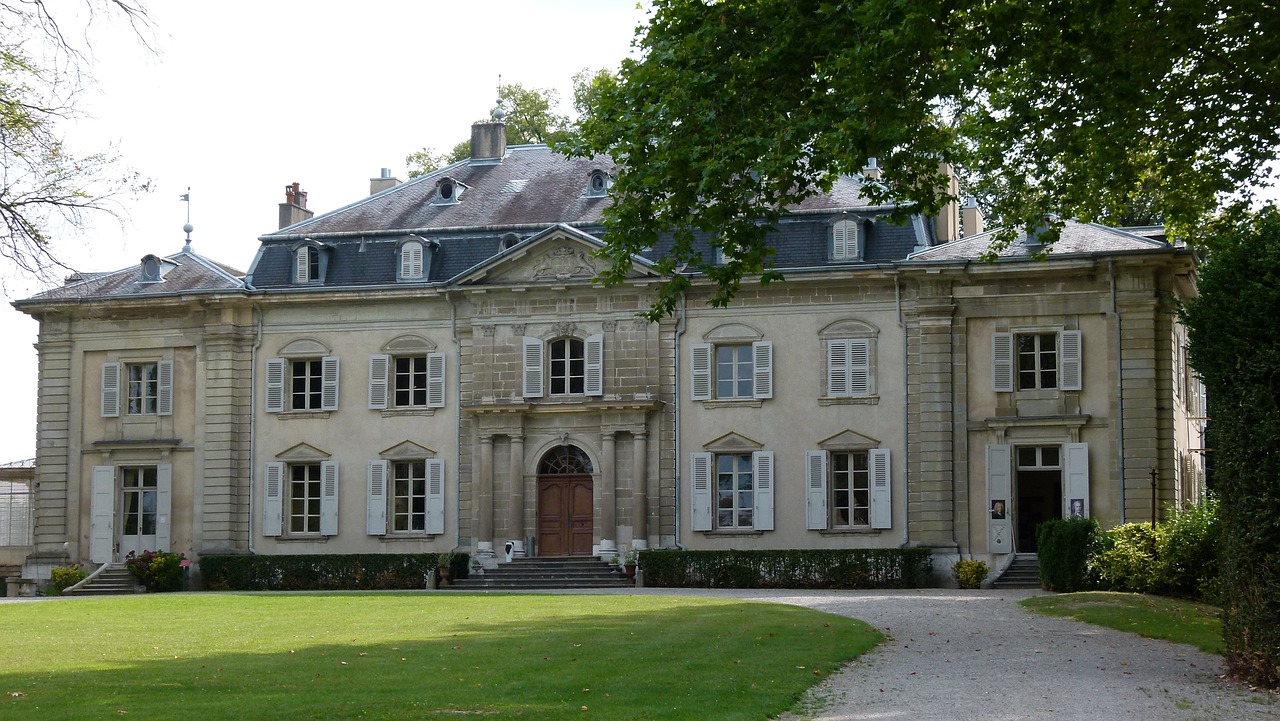
Candide,
This article explores the reasons behind Voltaire's opposition to organized religion, examining his philosophical beliefs, historical context, and the impact of his critiques on society and thought.
Voltaire was significantly influenced by Enlightenment thinkers who promoted reason and scepticism. These ideas shaped his views on organized religion and its role in society. Thinkers like John Locke and René Descartes encouraged a shift away from traditional doctrines, urging individuals to rely on their own reasoning. This intellectual climate fostered a spirit of inquiry that Voltaire embraced wholeheartedly, leading him to question the validity of religious institutions that claimed absolute truth without empirical evidence.
Voltaire often criticized religious dogma and superstition. He believed that blind faith could lead to irrationality and hinder human progress. In his eyes, the rigid adherence to dogma created an environment where critical thinking was stifled. This is evident in his famous quote, "Écrasez l'infâme," which translates to "Crush the infamous thing," referring to the oppressive nature of superstition and dogmatic beliefs. Voltaire argued that such beliefs not only misled individuals but also had dire consequences for society, leading to conflict and suffering.
Religious intolerance was a major concern for Voltaire. His passionate calls for tolerance were rooted in his understanding of the dangers of fanaticism, which he saw as a destructive force in both religious and societal contexts. He believed that intolerance bred violence and hatred, evident in various historical events that led to persecution and war. Voltaire famously stated, "I disapprove of what you say, but I will defend to the death your right to say it," highlighting his commitment to free expression and the importance of coexistence among diverse beliefs.
Voltaire championed freedom of thought as essential for personal and societal growth. He argued that questioning established norms and beliefs was crucial for progress. In his writings, he often encouraged individuals to think independently and to challenge the status quo. This advocacy for intellectual freedom not only reflected his personal beliefs but also resonated with the broader Enlightenment movement that sought to liberate minds from the shackles of ignorance and oppression.
Historical events, such as the Thirty Years' War and the Inquisition, shaped Voltaire's views. These events illustrated the catastrophic consequences of religious conflict and persecution, fueling his disdain for organized religion. He witnessed firsthand the suffering caused by wars fought in the name of faith, leading him to conclude that religion often served as a catalyst for violence rather than a source of peace. His writings reflect a deep concern for the impact of these events on human lives and the need for a more rational approach to belief systems.
Voltaire's personal experiences, including conflicts with religious authorities, informed his perspectives. He faced censorship and imprisonment for his outspoken critiques of the Church and its doctrines. Key events, such as his exile after the publication of his satirical works, fueled his criticisms and shaped his philosophical stance. These experiences not only hardened his views against organized religion but also inspired him to use his writing as a means of advocating for reform and enlightenment.
Voltaire utilized satire as a powerful tool against organized religion. His most famous work, Candide, serves as a prime example of how humor can expose hypocrisy and provoke thought. Through the misadventures of Candide, Voltaire critiques the optimistic philosophy of Leibniz, which posited that "all is for the best in the best of all possible worlds." The absurdity of Candide's experiences highlights the harsh realities of life, challenging the notion that faith can justify suffering. Voltaire's sharp wit and keen observations make Candide a timeless commentary on the human condition and the pitfalls of blind optimism.
Voltaire's opposition to organized religion has had a lasting impact. His ideas influenced future thinkers and contributed to the development of secularism in Western thought. By advocating for reason, tolerance, and freedom of thought, Voltaire laid the groundwork for modern philosophical discourse. His legacy is evident in the ongoing debates about the role of religion in society and the importance of maintaining a critical perspective on beliefs.
Voltaire's critiques remain relevant today. In a world where religious extremism and intolerance still pose significant challenges, his thoughts on organized religion continue to resonate in modern debates about faith, reason, and the role of religion in public life. As we navigate the complexities of contemporary society, Voltaire's emphasis on skepticism and the importance of questioning authority serves as a guiding principle for those seeking to foster understanding and coexistence among diverse belief systems.
Candide, one of Voltaire's most celebrated works, is a satirical novella that critiques the philosophy of optimism. Through the character of Candide, Voltaire explores the absurdities of life and the often harsh realities that contradict the notion that "all is for the best." The narrative follows Candide's journey through a series of misfortunes, each more ridiculous than the last, ultimately leading him to question the validity of the optimistic worldview he was taught. The novella serves as a powerful commentary on the dangers of blind faith and the necessity of critical thinking in the face of adversity. Voltaire's use of humor and irony not only entertains but also provokes readers to reflect on the complexities of human existence and the role of religion in shaping our understanding of the world.
- What were Voltaire's main criticisms of organized religion? Voltaire criticized organized religion for promoting dogma, superstition, and intolerance, which he believed hindered rational thought and human progress.
- How did historical events influence Voltaire's views? Events like the Thirty Years' War and the Inquisition illustrated the dangers of religious conflict, shaping Voltaire's disdain for organized religion.
- What role did satire play in Voltaire's work? Satire was a powerful tool for Voltaire, particularly in Candide, where he used humor to critique optimism and expose the absurdities of life.
- Why is Voltaire's legacy important today? Voltaire's emphasis on reason, tolerance, and freedom of thought continues to resonate in contemporary discussions about religion, ethics, and human rights.
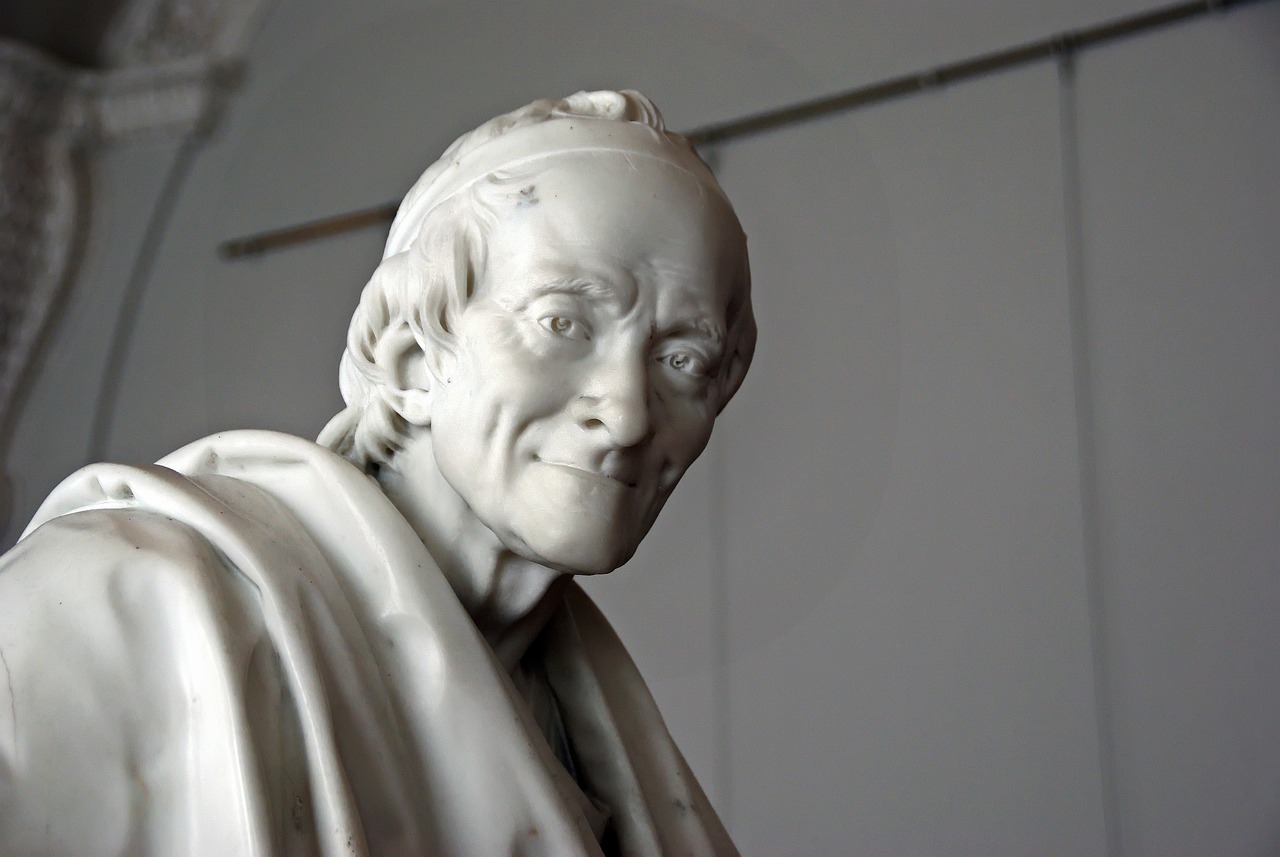
and how humor served to expose hypocrisy and provoke thought.
This article explores the reasons behind Voltaire's opposition to organized religion, examining his philosophical beliefs, historical context, and the impact of his critiques on society and thought.
Voltaire was significantly influenced by Enlightenment thinkers who promoted reason and skepticism. This section discusses how these ideas shaped his views on organized religion and its role in society.
Voltaire often criticized religious dogma and superstition. Here, we delve into his arguments against blind faith and the consequences of such beliefs on human rationality and progress.
Religious intolerance was a major concern for Voltaire. This subsection examines his passionate calls for tolerance and the dangers of fanaticism in both religious and societal contexts.
Voltaire championed freedom of thought as essential for personal and societal growth. This section highlights his beliefs about the importance of questioning established norms and beliefs.
Historical events, such as the Thirty Years' War and the Inquisition, shaped Voltaire's views. We explore how these events influenced his disdain for organized religion and its societal repercussions.
Voltaire's personal experiences, including conflicts with religious authorities, informed his perspectives. This subsection discusses key events that fueled his criticisms and shaped his philosophical stance.
Voltaire utilized satire as a powerful tool against organized religion. His wit and humor served not only as a means of entertainment but also as a sharp instrument to dissect and expose the hypocrisy prevalent within religious institutions. Through his writings, particularly in works like Candide, he employed irony and absurdity to highlight the contradictions between religious teachings and the actions of those who professed them. For instance, he often illustrated how religious leaders, who preached virtue and compassion, were frequently embroiled in scandals and moral failings.
By using humor, Voltaire was able to provoke thought and encourage readers to question the status quo. His satirical portrayals of religious figures often revealed their inconsistencies, prompting readers to reflect on the genuine nature of faith and the often misguided practices of organized religion. This approach allowed him to engage a broader audience, as humor tends to disarm and invite people into deeper discussions about serious topics.
Moreover, Voltaire's satire acted as a mirror, reflecting the absurdities of society and religion back to the audience. He made it clear that while religion could provide comfort and community, it also had the potential to foster ignorance and oppression. His clever jests were not just for laughs; they were calls to action, urging people to embrace reason over blind faith.
Voltaire's opposition to organized religion has had a lasting impact. This subsection reflects on how his ideas influenced future thinkers and contributed to the development of secularism in Western thought.
Voltaire's critiques remain relevant today. This section discusses how his thoughts on organized religion continue to resonate in modern debates about faith, reason, and the role of religion in public life.
- What were Voltaire's main criticisms of organized religion? Voltaire criticized the dogma, superstition, and intolerance associated with organized religion, advocating for reason and freedom of thought.
- How did Voltaire use satire in his writings? He used humor and irony to expose the hypocrisy of religious institutions and provoke critical thinking among his readers.
- What impact did Voltaire have on modern secular thought? Voltaire's ideas contributed significantly to the development of secularism and the promotion of individual rights and freedoms in society.
- Why is Voltaire's work still relevant today? His critiques of organized religion and advocacy for reason continue to resonate in contemporary discussions about faith, ethics, and the role of religion in public life.
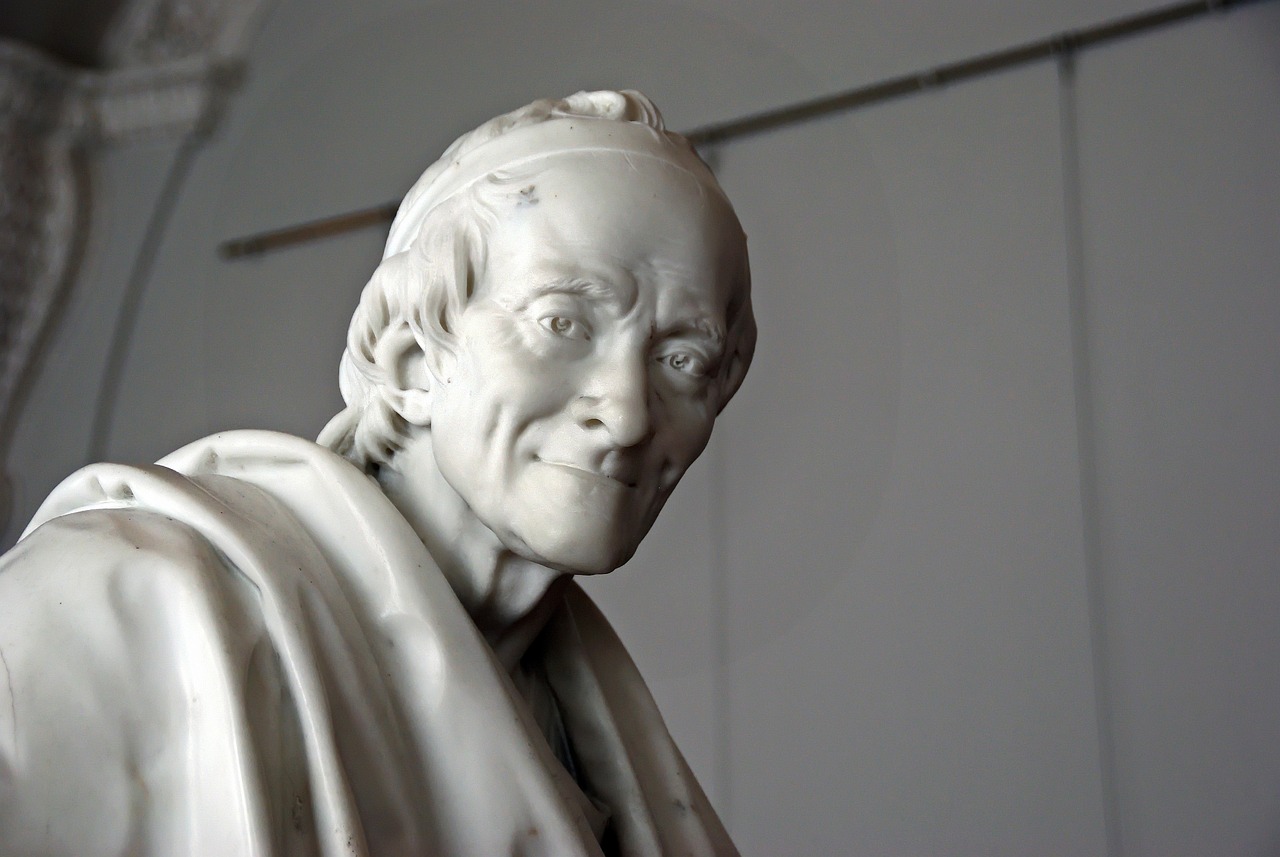
Legacy of Voltaire's Opposition
Voltaire's opposition to organized religion has left an indelible mark on the intellectual landscape of the modern world. His critiques, often laced with sharp wit and incisive reasoning, have paved the way for a more secular society. By challenging the status quo, Voltaire not only questioned the authority of religious institutions but also encouraged individuals to think critically about their beliefs. This legacy is not just historical; it continues to resonate in contemporary discussions about faith, reason, and morality.
One of the most significant aspects of Voltaire's legacy is his influence on the development of secularism. His arguments laid the groundwork for the separation of church and state, a principle that is now fundamental in many democratic societies. In fact, many of his ideas can be seen reflected in various legal frameworks that protect individual freedoms and promote religious tolerance. This shift has allowed for a greater diversity of beliefs, enabling people to coexist peacefully regardless of their faith or lack thereof.
Furthermore, Voltaire's commitment to freedom of expression has inspired countless thinkers and activists. His famous quote, "I disapprove of what you say, but I will defend to the death your right to say it," encapsulates the essence of his philosophy. This spirit of defending free speech, especially in the face of religious dogma, has become a rallying cry for those advocating for human rights and social justice. Today, we see echoes of Voltaire's thoughts in movements that champion freedom of thought and expression across the globe.
Moreover, Voltaire's use of satire as a tool for critique has influenced numerous writers and philosophers. His work, particularly in Candide, demonstrates how humor can be employed to expose the absurdities of organized religion and challenge prevailing norms. This approach has inspired generations of satirists, who continue to use comedy and irony to provoke thought and inspire change. The legacy of Voltaire's wit is evident in contemporary literature, film, and even social media, where satire remains a powerful medium for critique.
In addition to these contributions, Voltaire's ideas have also sparked ongoing debates about the role of religion in public life. His assertions about the dangers of religious fanaticism and intolerance are as relevant today as they were in the 18th century. In a world where religious extremism can lead to violence and division, Voltaire's call for tolerance and rational discourse serves as a guiding principle for many. His legacy challenges us to engage in meaningful conversations about faith and reason, encouraging a society that values both diversity and dialogue.
To summarize, Voltaire's opposition to organized religion has significantly shaped modern thought. His advocacy for secularism, freedom of expression, and the use of satire has left a lasting impact on how we perceive religion's role in society. As we navigate the complexities of contemporary life, the lessons drawn from Voltaire's critiques remain invaluable, reminding us of the importance of questioning authority and embracing a more tolerant world.
- What were Voltaire's main arguments against organized religion?
Voltaire criticized organized religion for promoting dogma, superstition, and intolerance, arguing that these elements hindered human rationality and progress.
- How did Voltaire influence secularism?
His writings laid the groundwork for the separation of church and state, advocating for a society where individuals could practice their beliefs freely without government interference.
- What role did satire play in Voltaire's critiques?
Satire allowed Voltaire to expose the hypocrisy and absurdities of organized religion, making his critiques more accessible and engaging for a wider audience.
- Are Voltaire's ideas relevant today?
Yes, Voltaire's thoughts on religious tolerance, freedom of expression, and the dangers of fanaticism continue to resonate in modern debates surrounding faith and reason.
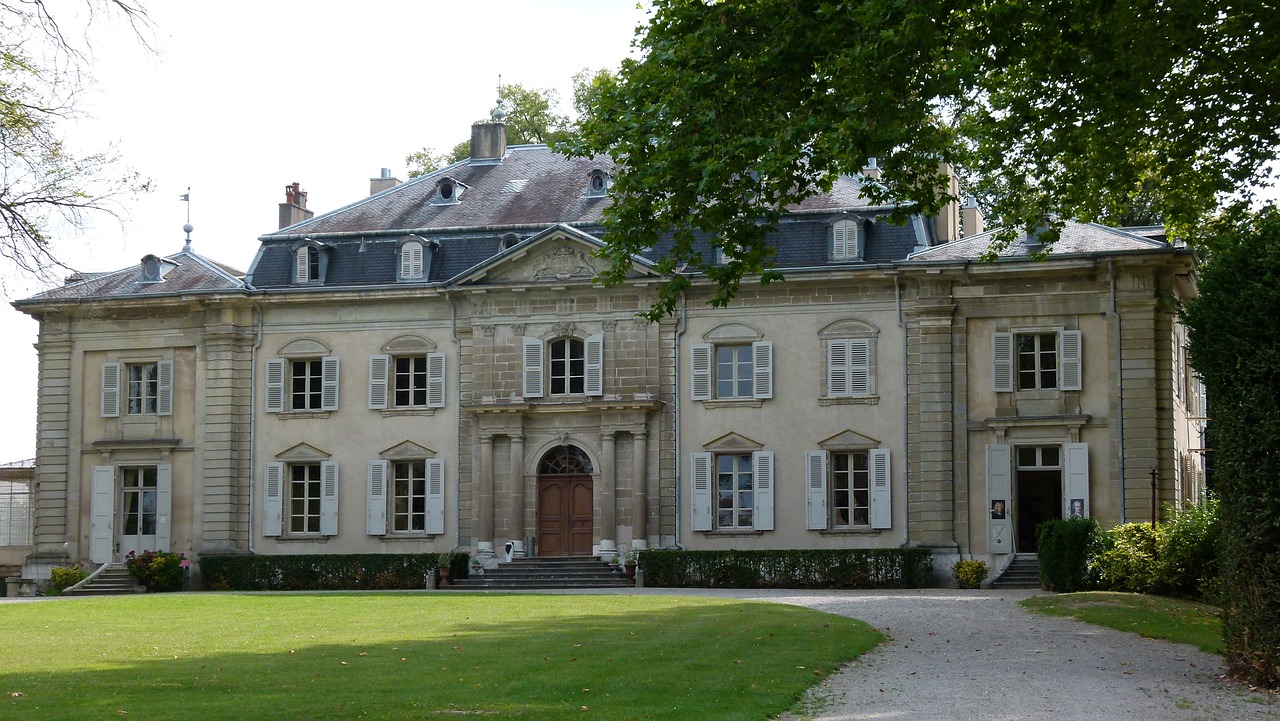
Contemporary Relevance of Voltaire's Ideas
Voltaire's ideas continue to resonate profoundly in today's world, where the tension between faith and reason remains a hot topic. In an era marked by rapid technological advancements and a growing emphasis on scientific inquiry, Voltaire's advocacy for freedom of thought and skepticism toward organized religion feels more pertinent than ever. His critiques serve as a reminder of the importance of questioning authority and dogma, especially in contexts where blind faith can lead to societal harm.
Take, for instance, the ongoing debates surrounding religious extremism and its impact on global politics. Voltaire's warnings about the dangers of fanaticism ring true as we witness conflicts fueled by religious intolerance, echoing his sentiments from centuries ago. His famous quote, "Écrasez l'infâme" (crush the infamous thing), captures his relentless fight against the oppression that can stem from organized belief systems. Today, this call to action can inspire individuals to challenge oppressive structures and advocate for a more inclusive society.
Moreover, Voltaire's emphasis on reason aligns with the modern movements that prioritize evidence-based approaches in addressing societal issues. Whether it’s discussions about climate change, healthcare, or education, the need for rational discourse is crucial. Voltaire's legacy encourages individuals to engage in thoughtful dialogue rather than succumb to the divisive rhetoric often seen in religious and political debates.
In a world where misinformation spreads like wildfire, Voltaire's insistence on critical thinking and skepticism serves as a guiding principle. His life and works remind us that questioning established norms is not just a philosophical exercise but a necessary practice for personal and societal growth. By fostering an environment where dissenting opinions are welcomed, we can cultivate a culture that values intellectual freedom and the pursuit of truth.
As we navigate the complexities of modern life, it's essential to reflect on how Voltaire's ideas can inform our understanding of religion's role in public life. His critiques challenge us to consider the implications of faith on governance, education, and social justice. In doing so, we honor Voltaire's legacy and continue the conversation he sparked about the balance between belief and reason.
In summary, Voltaire's insights remain profoundly relevant as they encourage us to question, to think critically, and to advocate for a world where reason prevails over dogma. The echoes of his thoughts can be seen in the ongoing struggles for human rights, freedom of expression, and the quest for knowledge in an increasingly complex world.
- What were Voltaire's main criticisms of organized religion?
Voltaire criticized organized religion for promoting dogma, superstition, and intolerance, arguing that these elements hindered human rationality and progress. - How did Voltaire's personal experiences shape his views?
His conflicts with religious authorities and witnessing the consequences of religious intolerance significantly influenced his philosophical stance against organized religion. - Why is Voltaire's advocacy for freedom of thought important today?
His emphasis on questioning established norms is crucial in combating misinformation and promoting critical thinking in contemporary society. - How do Voltaire's ideas relate to modern debates about religion?
Voltaire's critiques resonate in current discussions about the role of faith in public life, highlighting the need for tolerance and rational discourse.
Frequently Asked Questions
- Why did Voltaire oppose organized religion?
Voltaire opposed organized religion primarily due to its reliance on dogma and superstition, which he believed stifled human reason and progress. He felt that organized religion often led to intolerance, fanaticism, and conflict, undermining the principles of freedom and rational thought.
- How did Enlightenment thinkers influence Voltaire's views?
Enlightenment thinkers emphasized reason, skepticism, and individual rights, which significantly shaped Voltaire's philosophy. Their ideas encouraged him to question established norms and challenge the authority of organized religion, leading him to advocate for a more rational and tolerant society.
- What role did satire play in Voltaire's critique of religion?
Satire was a powerful tool for Voltaire, allowing him to expose the hypocrisy and absurdities of organized religion. Through his works, like Candide, he used humor to provoke thought and encourage readers to critically examine their beliefs and the societal norms surrounding them.
- Can you explain Voltaire's stance on religious intolerance?
Voltaire was a fierce advocate for religious tolerance, arguing that intolerance leads to violence and societal discord. He believed that fanaticism, whether in religion or other areas of life, poses a significant threat to personal freedom and social harmony.
- What historical events influenced Voltaire's opposition to organized religion?
Historical events like the Thirty Years' War and the Inquisition highlighted the destructive consequences of religious conflict and oppression. These events deeply affected Voltaire, reinforcing his disdain for organized religion and its capacity to harm society.
- How did Voltaire's personal experiences shape his views on religion?
Voltaire's conflicts with religious authorities, including imprisonment and exile, profoundly shaped his perspective. These personal encounters with the negative aspects of organized religion fueled his critiques and strengthened his commitment to advocating for freedom of thought.
- What is the legacy of Voltaire's opposition to organized religion?
Voltaire's critiques laid the groundwork for modern secularism and influenced future thinkers who championed reason and individual rights. His ideas continue to resonate in contemporary discussions about the role of religion in society and the importance of critical thinking.
- Why are Voltaire's ideas still relevant today?
Voltaire's thoughts on organized religion remain pertinent as society grapples with issues of faith, reason, and the intersection of religion and public life. His advocacy for tolerance and freedom of thought continues to inspire debates about the role of religion in shaping moral and ethical standards.









